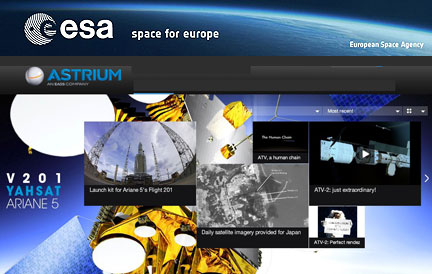The European Space Agency (ESA), in cooperation with the European Commission and the Telemedicine Task Force (TTF), has awarded the SAHEL demonstration project (Satellite African e-HEalth Validation) to a consortium led by Astrium. The demonstrator, which will be installed in Kenya and Senegal, will play a key role in the development of the future Pan-African telemedicine network. The project is scheduled to last 18 months. The technical solution to be introduced includes three types of e-health services:
- Medical e-Learning: to provide continuous training for healthcare professionals in rural settings
- Clinical e-Services: to link dispensaries and treatment centres to medical centres of excellence that can provide assistance for diagnostics and the treatment of patients
- Computerized health management system: to manage patients' files and collect medical data to monitor epidemics (such as AIDS in Kenya and malaria in Senegal)
“One of the keys to success for SAHEL is that it must be perfectly adapted to the needs of African users,” explained Patricia Inigo, who is in charge of the project at Astrium. “That's why we have to get a firm grasp on all their different needs so that we can build a telemedicine platform to meet them.” To this end, a major survey will be conducted over six months to analyze these needs in the Sub-Saharan countries concerned. The SAHEL partners will be working with healthcare professionals and centres of excellence that provide medical care adapted to the targeted environments. NGOs will be part of the program too, as they will help implement, monitor and assess the activities in the field. An economic analysis will also be conducted to guarantee the long-term viability of the services post-project, as well as to see if the programme can be deployed outside the pilot sites to other parts of the Sub-Saharan region.
Astrium Spain is leading the project, and is responsible for the integration and the demonstration phase. Astrium is also working with the following entities: SES ASTRA (Luxembourg) is defining the required services and supplying the fixed broadband internet access via satellite, INDRA (Spain) will be supplying the telemedicine platform, and the Université Médicale Virtuelle Francophone UNF3S (France) will be providing the medical training curriculum in French for the e-learning. These technologies and skills will all be made available to LE KINKELIBA, an organization that has been active in the healthcare field in Eastern Senegal for more than 15 years, and to the AMREF (African Medical Research Foundation), headquartered in Kenya and recognised worldwide for its many contributions to the development of health care services in Africa.


